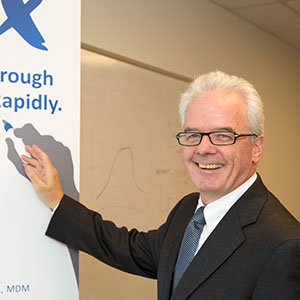Graham Boundy
Co-founder and Business & Technology Solutions Designer and Systems Architect

Graham is a Business & Technology Solutions Designer and Systems Architect who has been involved in all aspect of information and knowledge management infrastructures and has specialized in the architecture, design and implementation of business intelligence, database and enterprise data warehousing solutions.
As Co-founder of Project X ltd. he is responsible for overall strategy, architectural design and direction of integrated systems solutions for Project X clients.
He has worked with senior managers and executives on a daily basis and has advised VPs, senior executives, CIOs and CFOs with respect to strategic and tactical systems architectures, and technology road maps.
He is actively involved with the introduction and adoption of Rapid Results concepts and approaches at Project X Ltd.
His in depth knowledge of the BI world gives him and immediate appreciations for the scope of any assignment from data capture, to conception, detailed data and implementation models, and the manipulation and movement of large volumes of data. This includes an understanding of the complexities and limitations of the business and technology environments, and an ability to frame BI visions and propose directed and achievable BI solutions. This also entails an ability to set expectations, gauge client and team readiness, as well as listen for issues and communicate sound strategies and solutions that bridge the gaps between business and technology.
Graham has over 30 years of information technology experience. He has worked in data warehousing since its inception in the mid 1990’s. He has worked in Enterprise Data Warehouse environments based on Teradata (since 1998) and Micorstrategy (since 2003).
As an early adopters of Teradata, he has helped many organizations embrace the ideology of one version of the truth and a breakthrough attitude to help drive customer success.
Over the years he has worked with many systems integration platforms as they have evolved in their ability to work in enterprises with large volumes of data.

